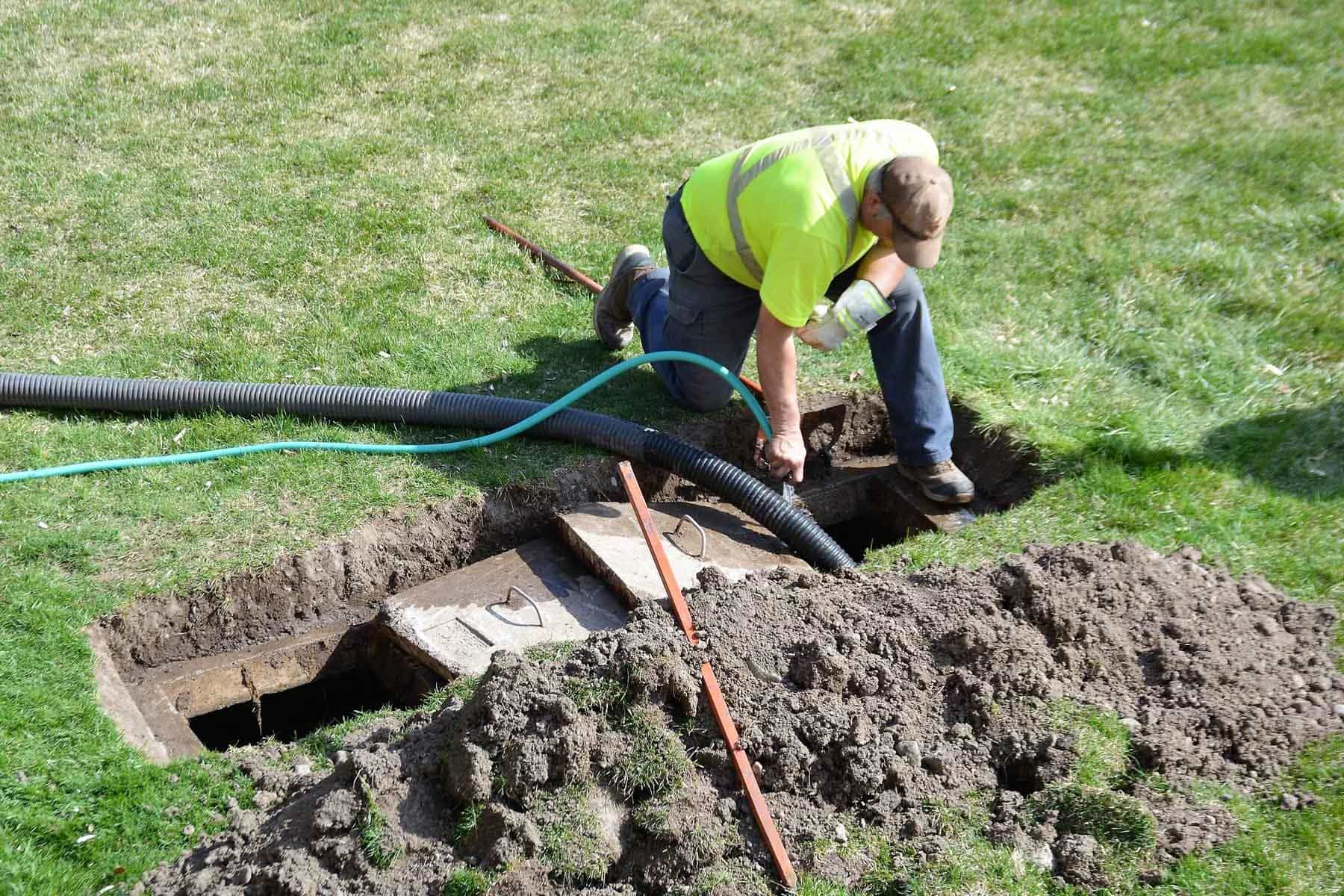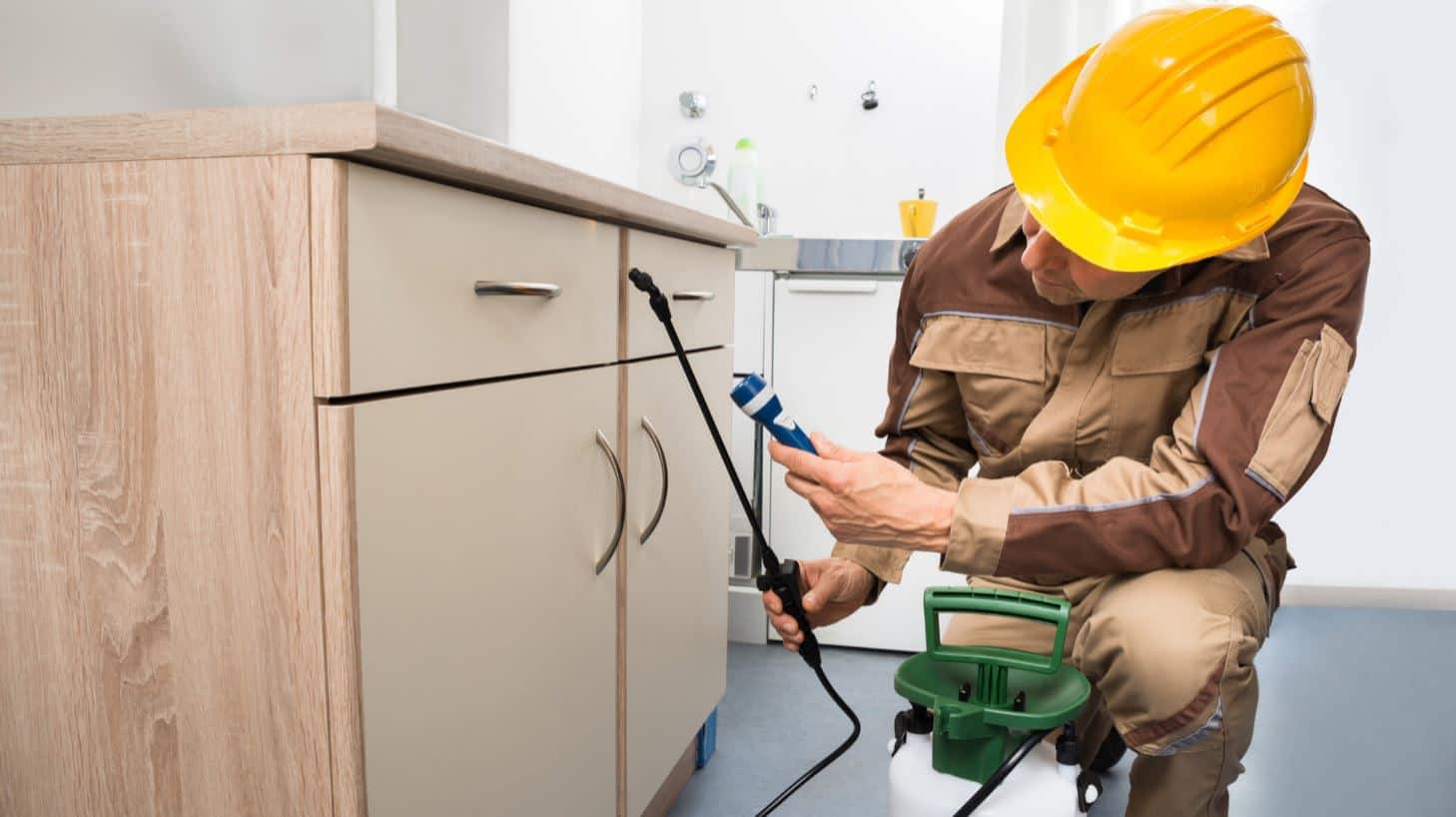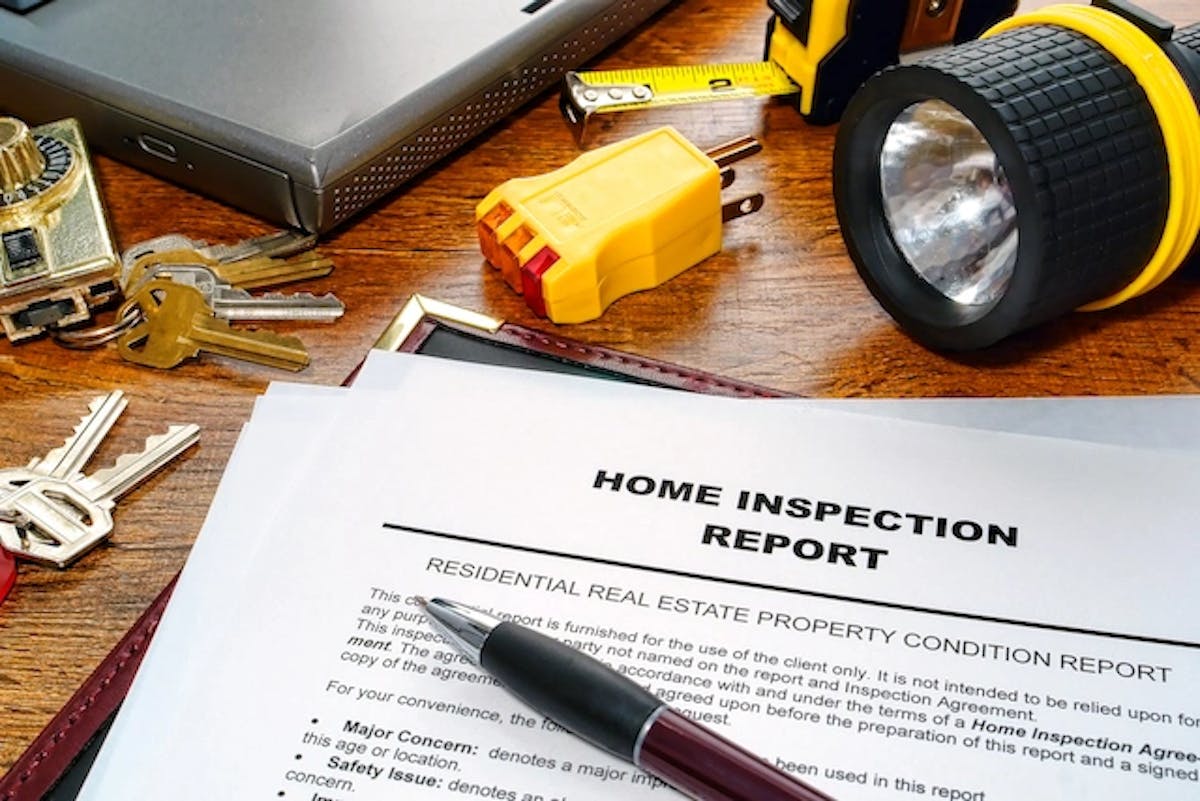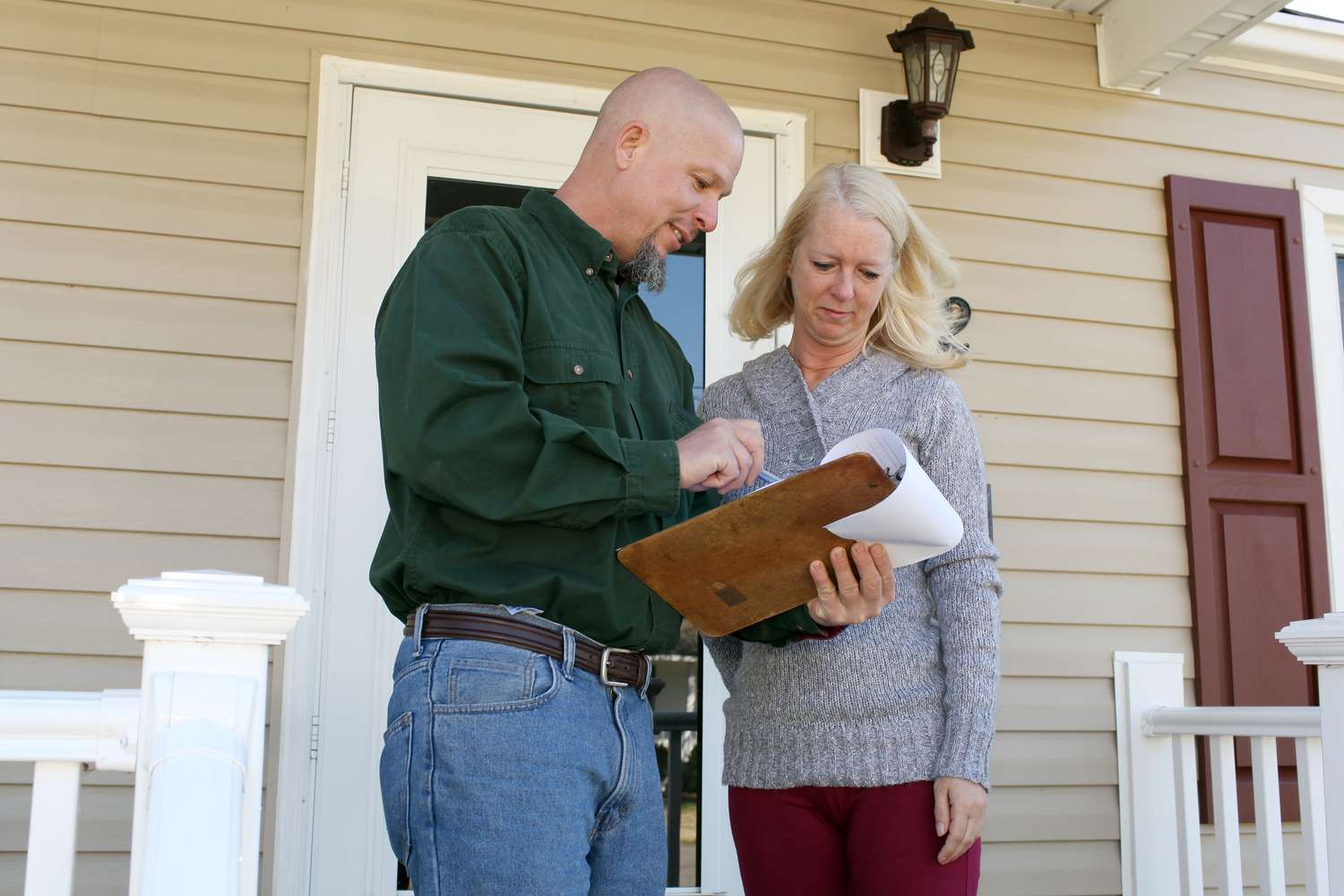Home>Home Maintenance>Who Pays For Septic Inspection: Buyer Or Seller?


Home Maintenance
Who Pays For Septic Inspection: Buyer Or Seller?
Modified: October 20, 2024
The responsibility of paying for a septic inspection in a real estate transaction typically falls on the buyer, but it may be negotiable between the parties. Ensure you understand this important aspect of home maintenance before finalizing a deal.
(Many of the links in this article redirect to a specific reviewed product. Your purchase of these products through affiliate links helps to generate commission for Storables.com, at no extra cost. Learn more)
Introduction
Welcome to the world of home maintenance! When it comes to taking care of your house, there are many aspects to consider. One crucial element that often gets overlooked is the septic system. Whether you’re buying or selling a property, understanding the importance of septic inspections is essential.
A septic inspection is a thorough examination of the septic system to ensure it is in proper working condition. This inspection is a critical step in the real estate buying and selling process, as it helps identify any potential issues that may exist with the septic system. But who is responsible for the cost of the septic inspection – the buyer or the seller?
In this article, we will explore the intricacies of septic inspections in real estate transactions and shed light on who typically pays for them. We will also discuss the importance of septic inspections, state regulations, common issues found during inspections, and financing options for septic system repairs.
So, if you’re ready to dive into the world of septic inspections and demystify who bears the cost, let’s get started!
Key Takeaways:
- Buyers are responsible for initiating and overseeing septic inspections. They should hire certified inspectors, attend the inspection, review the report, negotiate repair costs, and consider financing options if needed.
- Sellers must provide accurate disclosures about the septic system’s condition. They can conduct preemptive inspections, cooperate with buyer’s inspections, address identified issues promptly, and negotiate repair costs if necessary.
Understanding Septic Inspections
Before we delve into the intricacies of who pays for septic inspections, let’s first take a moment to understand what septic inspections entail.
A septic inspection involves a comprehensive examination of the septic system on a property to ensure it is functioning properly. It typically includes a visual inspection of the septic tank, drain field, distribution box, and other components of the system. The inspector will also check for signs of leaks, blockages, or any other issues that may affect the overall functionality of the system.
Septic inspections are crucial because they help identify potential problems that may exist with the septic system. Catching these issues early on can save homeowners thousands of dollars in costly repairs or replacements down the line. Moreover, for buyers, a septic inspection provides peace of mind knowing that the property’s septic system is in proper working condition before making a significant investment.
During the inspection, the septic inspector may also perform tests such as a dye test or a perc test. These tests help determine if the septic system is functioning optimally and if it meets local regulations and environmental standards. In some cases, additional inspections such as well water testing may also be necessary to assess the overall health and safety of the property.
In summary, septic inspections are vital for both buyers and sellers as they ensure the septic system is functioning properly, identify potential issues, and provide peace of mind.
The Importance of Septic Inspections in Real Estate Transactions
When it comes to real estate transactions, septic inspections play a crucial role. Whether you’re buying or selling a property, understanding the importance of these inspections is paramount.
For buyers, a septic inspection is an opportunity to assess the condition of the septic system and uncover any potential issues that may impact the property’s value or require costly repairs. A faulty septic system can lead to a myriad of problems, ranging from sewage backups to environmental contamination. By conducting a thorough inspection, buyers can make informed decisions and avoid unexpected expenses in the future.
For sellers, a septic inspection can help demonstrate the condition of the septic system and assure potential buyers that there are no underlying issues. Providing a clean bill of health for the septic system can instill confidence in the buyer and potentially lead to a smoother and more expedited sale process.
Moreover, in many states, a septic inspection is a legal requirement when selling a property. State regulations often mandate that sellers must disclose any known septic system issues to potential buyers. By conducting a septic inspection beforehand, sellers can identify these issues and address them proactively, avoiding potential legal complications or disputes.
Septic inspections also have environmental benefits. Faulty septic systems can contaminate groundwater, leading to the spread of harmful bacteria and pollutants. By ensuring the septic system is functioning properly, homeowners can protect their health and the environment around them.
Overall, the importance of septic inspections in real estate transactions cannot be overstated. They provide buyers with vital information about the state of the septic system, protect sellers from potential legal issues, and contribute to the overall health and well-being of the community.
State Regulations on Septic Inspections
When it comes to septic inspections, state regulations play a significant role in determining the requirements and standards that must be met. Each state has its own set of guidelines and laws regarding septic inspections in real estate transactions. It’s crucial to familiarize yourself with these regulations to ensure compliance and a smooth transaction process.
While the specific regulations may vary from state to state, there are some common themes and requirements found across the board. Here are a few key aspects to consider:
Mandatory Inspection: Many states have made septic inspections a mandatory part of the real estate transaction process. Sellers are required to have a septic inspection conducted before listing their property, and the results must be disclosed to potential buyers. States like Massachusetts, New Hampshire, and Oregon have strict guidelines in place regarding septic inspections.
Timeframe: State regulations often stipulate the timeframe within which a septic inspection must be completed. This can range from a few months to a year, depending on the state. It’s essential to check the specific regulations in your state to ensure compliance and avoid any potential delays or penalties.
Certified Inspectors: Many states require that septic inspections be carried out by certified inspectors or licensed professionals. These individuals have the necessary training and expertise to assess the septic system properly. Hiring a certified inspector ensures that the inspection is conducted according to state standards and provides an accurate evaluation of the system’s condition.
Reporting Requirements: State regulations often outline the specific information that must be included in the septic inspection report. This may include details about the tank size, condition, and location, as well as any identified issues or recommendations for repairs. Adhering to these reporting requirements is essential for compliance and transparency in the transaction process.
Repair and Replacement Guidelines: In some cases, state regulations may also provide guidance on the necessary repairs or replacements if the septic system fails the inspection. These guidelines may outline deadlines for completing the repairs or requirements for obtaining permits and approvals. It is essential to be familiar with these guidelines to ensure a smooth resolution in case any issues are identified.
It’s important to note that the regulations governing septic inspections can change over time, so it’s crucial to stay up-to-date with any updates or revisions. Consulting with a local septic system professional or contacting your state’s environmental agency can provide you with the most accurate and current information.
By understanding and adhering to the state regulations on septic inspections, you can ensure a compliant and successful real estate transaction process.
Buyer’s Responsibility for Septic Inspections
When it comes to septic inspections in real estate transactions, the responsibility for the inspection often falls on the buyer. It is in the best interest of the buyer to thoroughly assess the condition of the septic system before finalizing the purchase of a property. Let’s explore the buyer’s role and responsibilities in septic inspections:
Initiating the Inspection: As a buyer, it is your responsibility to initiate the septic inspection. Once you have identified a property of interest, you should include a contingency clause in the purchase agreement that allows for a professional septic inspection to be conducted within a specified timeframe.
Hiring a Certified Inspector: When it comes to septic inspections, it is crucial to hire a certified septic system inspector or a licensed professional who has the expertise and knowledge to thoroughly assess the system. Conduct research and choose a reputable inspector with experience in septic inspections.
Attending the Inspection: While it is not always required, it is highly recommended that buyers attend the septic inspection. This provides an opportunity to ask questions, understand the inspection process, and gain a firsthand understanding of the septic system’s condition. Being present during the inspection allows you to address any concerns directly with the inspector.
Reviewing the Inspection Report: Once the inspection is complete, the inspector will provide a detailed report outlining the findings. It is the buyer’s responsibility to thoroughly review this report and understand the implications. Pay close attention to any identified issues, recommended repairs, or potential red flags.
Negotiating Repairs or Credits: If the septic inspection reveals any significant issues or repairs that need to be addressed, it is up to the buyer to negotiate with the seller regarding who will be responsible for these repairs or whether a credit can be provided for the cost of repairs. This negotiation is typically done as part of the contingencies outlined in the purchase agreement.
Considering Financing Options: In some cases, the cost of septic system repairs or replacements can be substantial. As a buyer, it may be necessary to consider financing options for these expenses. Explore options such as personal loans or specialized loans for septic system repairs to ensure that you can cover the costs without straining your finances.
As a buyer, it is essential to take the responsibility of septic inspections seriously. By conducting a thorough inspection, reviewing the report, and negotiating repairs or credits when needed, you can make an informed decision about the property and protect yourself from potential future expenses.
In most cases, the buyer is responsible for paying for the septic inspection. However, this can be negotiated as part of the home purchase agreement. Always clarify this detail before finalizing the deal.
Seller’s Responsibility for Septic Inspections
When it comes to septic inspections in real estate transactions, the responsibility for the inspection can also fall on the seller. Ensuring that the septic system is in good working order and disclosing any known issues is important for sellers to facilitate a smooth and transparent transaction. Let’s explore the seller’s role and responsibilities in septic inspections:
Preemptive Inspection: While it may not be mandatory in all states, sellers can choose to conduct a preemptive septic inspection before listing the property. This proactive approach allows sellers to identify any potential issues with the septic system and address them prior to putting the property on the market.
Disclosure: Sellers are legally obligated to disclose any known septic system issues to potential buyers. If there have been previous repairs, backups, or other related problems, it is essential to provide this information upfront. Failure to disclose known issues could lead to legal complications and financial liabilities down the line.
Providing Documentation: As a seller, you should be prepared to provide documentation related to the septic system. This includes any records of maintenance, repairs, or previous inspections. Providing this documentation can give buyers an added sense of confidence in the condition of the septic system.
Cooperating with the Buyer’s Inspection: Once a buyer initiates a septic inspection as part of the purchase agreement, it is the seller’s responsibility to cooperate with the inspection process. This may involve granting access to the septic system, ensuring that necessary utility connections are available, and providing any additional information or documentation requested by the inspector.
Addressing Identified Issues: If the buyer’s septic inspection reveals any issues with the septic system, it is generally the seller’s responsibility to address them. Depending on the nature and extent of the problems, the seller may need to arrange for repairs, replacements, or other corrective actions. Addressing these issues in a timely manner is crucial to moving forward with the transaction.
Negotiating Repair Costs: In some cases, the cost of septic system repairs or replacements can be significant. If repairs are necessary, sellers may need to negotiate with the buyer regarding the responsibility for these costs. This negotiation is typically done as part of the contingencies outlined in the purchase agreement.
By taking on the responsibility of septic inspections and addressing any identified issues, sellers can create trust and transparency in the transaction process. This proactive approach can help facilitate a smoother sale and prevent potential legal complications or disputes down the line.
Negotiating Septic Inspection Costs
When it comes to septic inspections in real estate transactions, the cost of the inspection is typically negotiated between the buyer and the seller. The negotiation process involves determining who will bear the financial responsibility for the inspection. Let’s explore some key considerations and strategies for negotiating septic inspection costs:
Include Inspection Contingency: It is important to include a contingency clause in the purchase agreement that allows for a professional septic inspection to be conducted. This contingency gives the buyer the opportunity to assess the condition of the septic system before finalizing the purchase. The inclusion of this clause signals to the seller that the cost of the inspection will likely be the responsibility of the buyer.
Consider Local Market Norms: In some areas, it may be common for the buyer to bear the cost of the septic inspection, while in other regions, sellers may be more willing to cover the expense. Understanding local market norms and expectations can help guide the negotiation process.
Evaluate the Property’s Selling Price: The selling price of the property can be a factor in negotiating the septic inspection costs. If the seller is asking for a higher price, they may be more willing to absorb the cost of the inspection as a gesture to facilitate the sale. On the other hand, if it’s a competitive market or the property is priced at a discount, the buyer may be expected to cover the inspection cost.
Factor in the Inspection Results: The results of the septic inspection can also influence the negotiation process. If significant issues are identified during the inspection, the buyer may request that the seller cover all or a portion of the repair costs. This can be a point of negotiation and may impact who pays for the inspection itself.
Seller Credits: Instead of directly covering the septic inspection cost, sellers may offer a credit to the buyer. This credit can be applied towards the buyer’s closing costs or used to offset any subsequent repairs or system upgrades that may be necessary. Seller credits provide flexibility in the negotiation process and can be a win-win situation for both parties.
Seek Professional Advice: It can be helpful to seek advice from real estate professionals, such as agents or attorneys, to navigate the negotiation process. They can provide guidance based on their experience and knowledge of local practices.
Ultimately, the negotiation of septic inspection costs requires open communication and mutual agreement between the buyer and the seller. By considering local norms, property specifics, and the inspection results, the parties involved can come to a fair and satisfactory resolution. Remember, the goal is to ensure a smooth transaction while protecting the interests of both the buyer and the seller.
Common Issues Found During Septic Inspections
During septic inspections, professional inspectors often uncover various issues that may affect the proper functioning of the septic system. Identifying these issues is crucial for buyers and sellers alike, as it allows for informed decision-making and potential repairs or maintenance. Let’s explore some of the most common issues that can be found during septic inspections:
Solid Build-up in the Septic Tank: Over time, solid waste can accumulate in the septic tank, leading to a reduced capacity for wastewater storage and potential blockages. This issue can arise from irregular pumping or poor maintenance practices.
Drain Field Problems: The drain field is responsible for filtering and dispersing the effluent from the septic tank. Issues such as clogged or damaged pipes, soil compaction, or flooding can hinder the drain field’s ability to efficiently perform its function.
Harmful Root Intrusion: Tree roots seeking water can infiltrate the septic system, causing significant damage to pipes and components. This can lead to leaks, blockages, and compromised system performance.
Leaks and Pipe Damage: Cracked or damaged pipes can result in leaks, allowing wastewater to escape into the surrounding soil. This can contaminate groundwater and pose health and environmental risks.
Inadequate Tank Size: In some cases, the septic tank may be undersized for the property’s needs. This can lead to frequent backups, inefficient treatment, and ultimately, system failure.
Poor System Design or Installation: Inadequate system design or improper installation can result in a range of issues. These may include incorrect pipe slopes, improper placement of components, or insufficient ventilation, all of which can impact the system’s functionality.
Poor Maintenance Practices: Lack of regular septic system maintenance, such as pumping, can contribute to various issues. This includes solid build-up, clogs, and reduced system efficiency.
Environmental Concerns: Septic systems that are not functioning properly can pose environmental risks. Pollution of nearby water sources, contamination of soil and vegetation, and the spread of harmful pathogens are all potential consequences.
Old or Aging Components: In older properties, septic systems may have components that have surpassed their expected lifespan. Aging tanks, pipes, or distribution boxes can be prone to deterioration or failure.
It’s important to note that the severity and impact of these issues can vary. While some problems may be minor and easily remedied, others may require significant repairs or even replacement of the entire septic system. Addressing these issues promptly is crucial to ensure the functionality, safety, and longevity of the septic system.
Financing Options for Septic System Repairs
When septic system repairs or replacements are needed, homeowners may face significant expenses. Fortunately, there are several financing options available to help cover the costs. Let’s explore some common financing options for septic system repairs:
Personal Loans: One option is to obtain a personal loan from a bank or credit union. Personal loans provide a lump sum that can be used to cover the costs of septic system repairs. These loans are typically unsecured, meaning they don’t require collateral, and can offer fixed or variable interest rates.
Home Equity Loans or Lines of Credit: Another option is to tap into your home’s equity through a home equity loan or line of credit. These options allow you to borrow against the value of your home, using it as collateral. Home equity loans typically offer fixed interest rates and are disbursed as a lump sum, while home equity lines of credit provide a revolving credit line.
Government Programs: Several government programs may provide assistance or financing options for septic system repairs. These programs vary by location, but examples include grants, low-interest loans, or subsidies offered by state or local agencies. Researching government programs specific to your area can help uncover potential financial assistance.
Specialized Septic System Loans: Some financial institutions offer specialized loans designed specifically for septic system repairs or replacements. These loans may have favorable terms and low-interest rates compared to traditional personal loans. Research local lenders or speak with a loan officer to explore this option.
Contractor Financing: In some cases, septic system repair or installation contractors may offer financing options. These may include deferred payment plans or installment options. Prior to selecting a contractor, inquire if they offer any financing arrangements to help manage the cost of the project.
Homeowners Insurance Coverage: While rare, it’s worth checking your homeowners insurance policy to see if it covers septic system repairs or replacements. Some policies may provide coverage for certain types of damage or failures. Review your policy documents or contact your insurance provider to determine if this type of coverage is available to you.
Save and Budget: If the cost of septic system repairs is not immediately urgent, one option is to save and budget over time to cover the expenses. Allocate a portion of your monthly budget toward a dedicated repair fund. While this option may take longer, it can help prevent financial strain and the need to take on additional debt.
When considering financing options for septic system repairs, it’s important to carefully evaluate the terms and interest rates. Compare offers from different lenders, review the repayment terms, and assess your own financial situation to ensure you choose the option that best fits your needs and budget.
Remember, maintaining a well-functioning septic system is crucial for the health and value of your home. Investing in timely repairs and proper maintenance can help prevent costly problems down the line.
Conclusion
Septic inspections are a vital component of the home buying and selling process. Understanding the responsibility for these inspections and the associated costs is crucial for both buyers and sellers.
Buyers play a significant role in initiating and overseeing the septic inspection process. By hiring a certified inspector, attending the inspection, and reviewing the inspection report thoroughly, buyers can make informed decisions about their potential investment. Additionally, negotiating repair costs and considering financing options can help buyers manage any necessary repairs or upgrades to the septic system.
Sellers, on the other hand, have the responsibility to provide accurate disclosures regarding the septic system’s condition. A preemptive inspection before listing the property can help identify and address any potential issues. Cooperating with the buyer’s inspection and addressing any identified issues promptly is essential to ensuring a smooth transaction process.
State regulations also play a crucial role in septic inspections, and it’s imperative to understand and comply with these regulations to avoid legal complications. Familiarizing yourself with the common issues found during septic inspections can help you anticipate potential problems and address them accordingly.
Furthermore, financing options are available to assist homeowners with the cost of septic system repairs. Personal loans, home equity options, and specialized septic system loans are just a few options to consider. Carefully evaluate the terms and interest rates before choosing the best financing option for your needs.
In conclusion, septic inspections are an essential part of home maintenance and real estate transactions. By understanding the responsibility for inspections, complying with state regulations, and addressing any identified issues, buyers and sellers can ensure a smooth process and protect their investment. Prioritizing the health and proper functioning of the septic system is not only vital for the well-being of homeowners but also for the environment as a whole.
Frequently Asked Questions about Who Pays For Septic Inspection: Buyer Or Seller?
Was this page helpful?
At Storables.com, we guarantee accurate and reliable information. Our content, validated by Expert Board Contributors, is crafted following stringent Editorial Policies. We're committed to providing you with well-researched, expert-backed insights for all your informational needs.














0 thoughts on “Who Pays For Septic Inspection: Buyer Or Seller?”